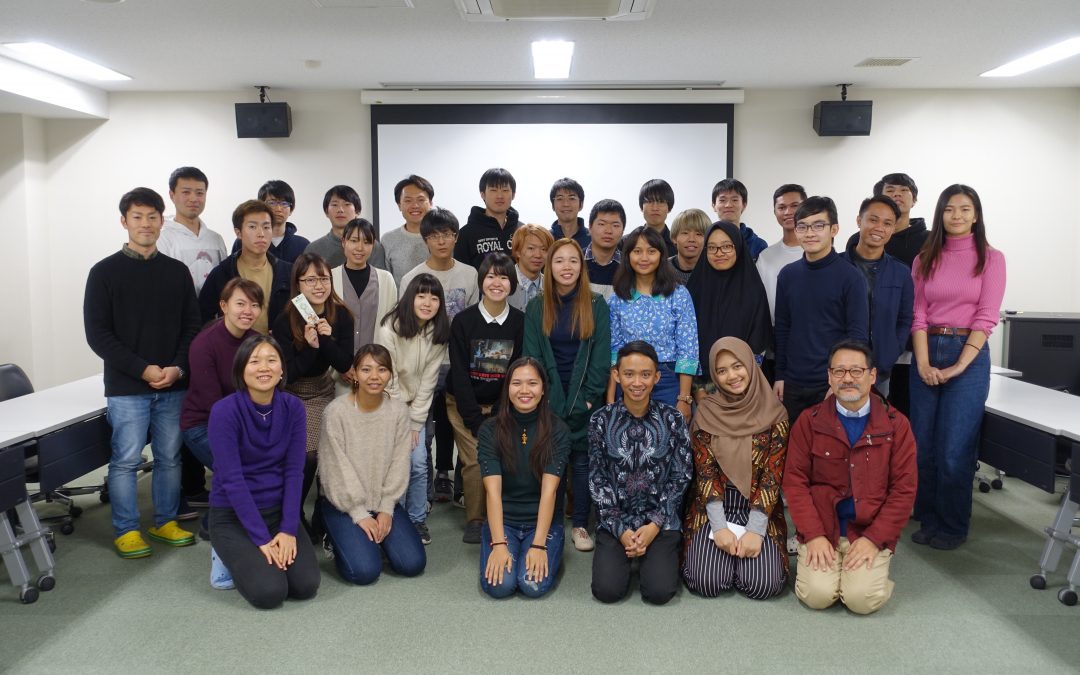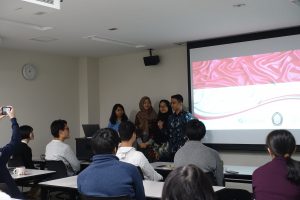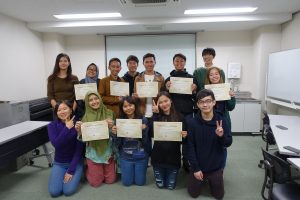
Sakura Science Program (SSP) is a Japanese-Asian youth exchange program in the field of science organized by the Japan Science and Technology Agency (JST), inviting selected Asian students and young professionals to learn more about a particular field of science and technology (according to their background scientific background that the program participants are involved in) with universities and research institutions in Japan. This program also aims to build bridges for personal and research exchanges between Japan and partner countries (Asia).
This year, one lecturer and three students from the Diponegoro University Aquaculture Department, namely Seto Windarto, S. Pi., M. Sc., M.P. (leader), Amira Salma Salsabila, Hanny Ammaria, and Widya Dwi Wijayanti had the opportunity to join the program for 10 days (19 – 28 November 2019) at Tokyo University of Marine Science and Technology (TUMSAT), Tokyo, Japan.

Together with other participants from the Philippines, the theme of the program that was followed on this occasion was about fish disease diagnosis methods consisting of virus isolation in cell culture, PCR, quantitative PCR and IFAT with smear specimens and cryo-sections using fish samples infected with Cyprinid Herpesvirus 2. (CyHV-2) which was carried out in the fish pathology laboratory, TUMSAT.
During the course of the program, SSP participants were also given the opportunity to visit the Tateyama Field Station of TUMSAT to see the cultivation system and cross-breeding results of tuna and mackerel, and also to visit the OIE (International Organization of Animal Health) Regional Representation for Asia and the Pacific, a health organization. animal world that regulates health and disease control in animals in the Asia Pacific region located at the University of Tokyo.
 Apart from the scientific field, the organizing country and participating countries also conduct cultural exchanges by conducting cultural tours, short presentations about the countries of origin of the participants, and through daily conversations.
Apart from the scientific field, the organizing country and participating countries also conduct cultural exchanges by conducting cultural tours, short presentations about the countries of origin of the participants, and through daily conversations.
The Sakura Science Program was closed by handing over a Certificate of Achievement to each participant by representatives of the program organizers. In accordance with the objectives of this program, participants are expected to contribute to the development of science  and technology and are expected to establish sustainable relations between Japan and other countries in the future.
and technology and are expected to establish sustainable relations between Japan and other countries in the future.
This activity was very fun and an experience we will never forget – Amira Salma Salsabila (Aquaculture 2016).

Recent Comments